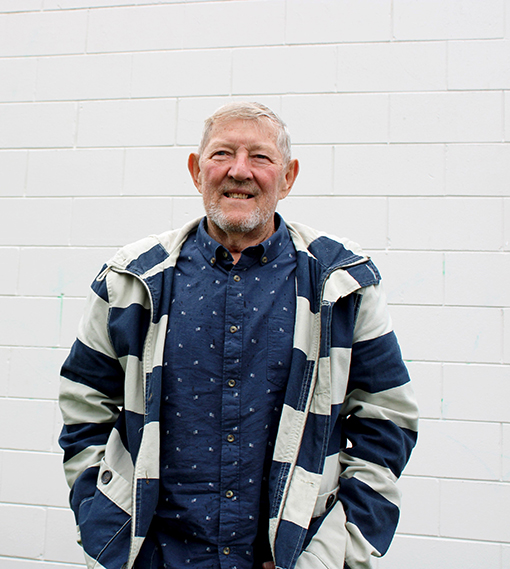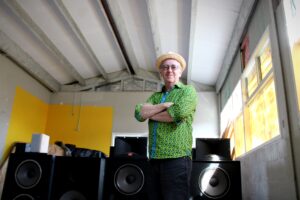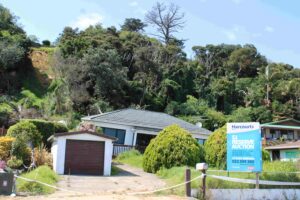Ross Harris is asking men to put their health into their own hands.
With Blue September kicking off this week, the Hauraki District Councillor – who was diagnosed with prostate cancer four years ago – is telling men to “get over” themselves and get checked for the disease that takes the life of 700 Kiwi blokes each year.
According to the New Zealand Prostate Cancer Foundation, one in eight Kiwi men will be diagnosed with prostate cancer in their lifetime.
Every year, more than 4000 men are diagnosed and over 700 die from the disease – the third highest cause of death after lung and bowel cancers.
Early detection was key for a better chance of successful treatment, and Ross said this meant men must take responsibility for their health.
“When I was diagnosed with prostate cancer, I sat and talked with my GP and asked: ‘where is the screening taking place for men’s prostate?’ and the answer was that they could screen, but it would clog the system up with false-positives,” he told The Profile.
“I got angry and said: ‘Come with me and sit at the oncology department and look at the clogging of the system when we do find them’. So, surely early detection is the answer.”
In the early 2000s, Ross had two blood PSA tests which had a result of around 3.2. The test measures the amount of prostate-specific antigen in the blood, and is used primarily to screen for prostate cancer.
By 2012, his PSA levels had increased to 6.1.
“Come early 2018, I knew something was wrong,” he said. “We had one of our grandsons staying with us, and I walked past the toilet – the door was shut – and I thought: ‘He’s got a hose in there!’”
Ross sat down to inspect his medical records for the result of his last PSA test and couldn’t find them. He made an appointment with his GP – who couldn’t find the records either. After being sent for another round of blood tests, “all hell broke loose”, he said.
The results came back with a PSA reading of 9.4 and Ross was immediately sent to get a bone scan, a biopsy, and a PET scan, which eventually identified he had Stage 4 terminal prostate cancer. Because it had spread into his pubic bone, surgery wasn’t an option.
“The initial ‘holy sh*t I’ve got stage four prostate cancer’ was a shock, but it was about what we would do next. My glass has always been over half-full. I love taking the top off and putting more back in,” he said.
“A lot of men would say you just roll up your sleeves and punch [cancer] in the face, and perhaps that’s what you do, but you find an inner strength that you don’t know you’ve got.”
What followed was eight weeks of radiation, with Ross driving backwards and forwards from Hauraki to Hamilton every day, as well as “being harpooned” with hormonal drugs every three months – an appointment he still continues to hold.
With it now being Blue September – a month-long fundraiser in which people host events or create challenges in support of the Prostate Cancer Foundation – Ross encouraged men to become familiar with the symptoms of the disease and take their health into their own hands. “One of the things that really grates my gears is that we, as men, don’t talk about these sorts of things. We are hopeless. We make big jokes about it, and when you sit someone down and actually ask: ‘When was the last time you had a PSA, when was the last time you had a rectal?’ They’d rather pick up a beer and forget about it,” he said.
“When I was diagnosed, I wanted people to know the truth. I told them: ‘This is where I’m at – but where are you at?’”
Ross said the life expectancy after being diagnosed with prostate cancer was only around five years, but he was now at year four and was doing “fine”.
“The amount of support I got from family and friends was outstanding, and you almost felt like there was a community behind you, that everyone was rooting for you, especially at [Hauraki District] council.”
The Prostate Cancer Foundation receives no government funding, and relies instead on donations to raise awareness about prostate cancer and the importance of getting regular checks for men over 50. It also advocates for improved healthcare services for men with prostate cancer.
“My one-liner would be that men must take responsibility for their own health. We’ve got to, that’s all there is to it, because no one else is,” Ross said. “Our wives and daughters will be, but the medical system is not doing men any favours at all.
“And if you’ve had no [PSA] test – almost insist it be tested for or, for heaven’s sake, a rectal examination takes 20 seconds. Get over yourself and do it.”
DETAILS: For details on Blue September and how to donate, visit fundraise.prostate.org.nz





